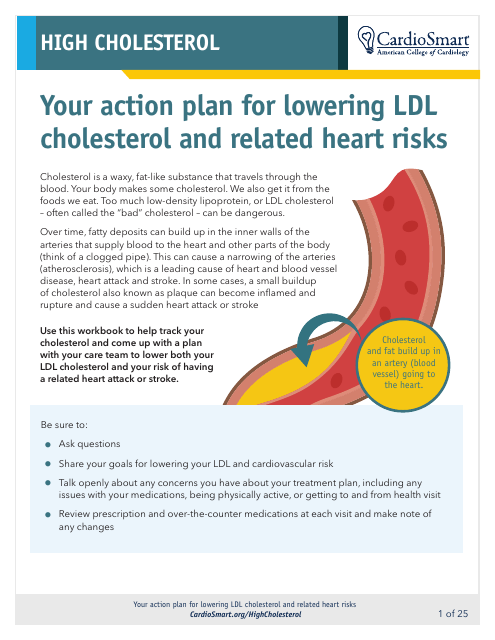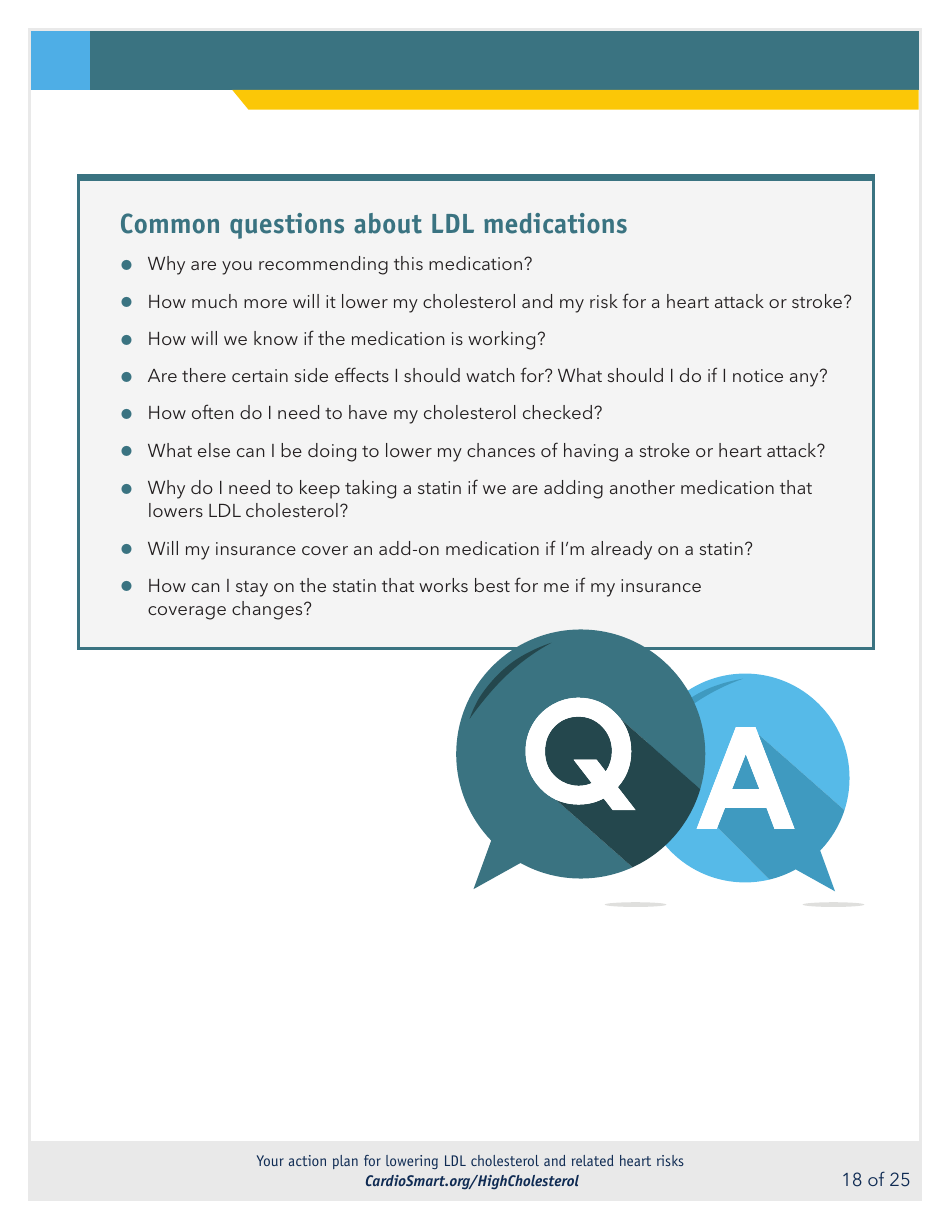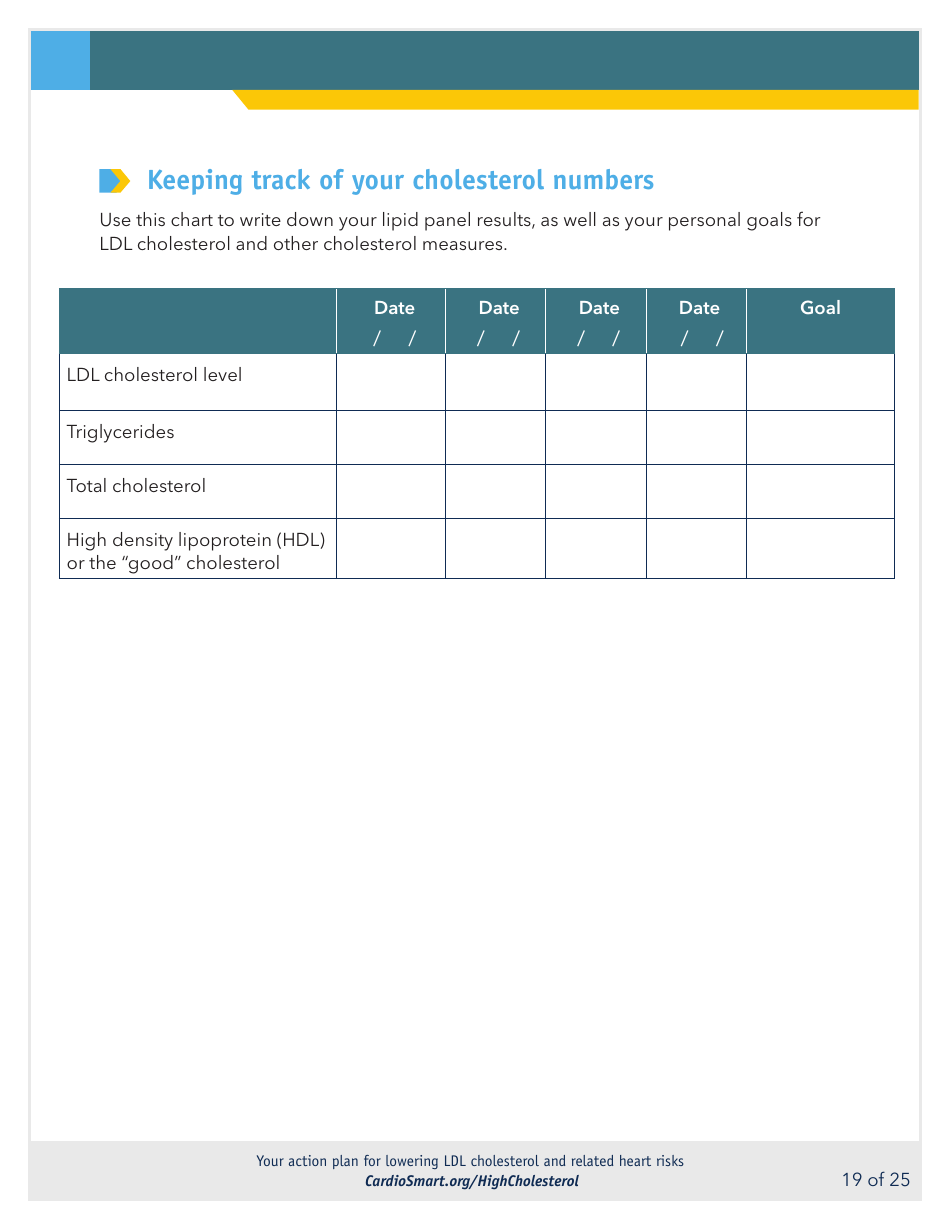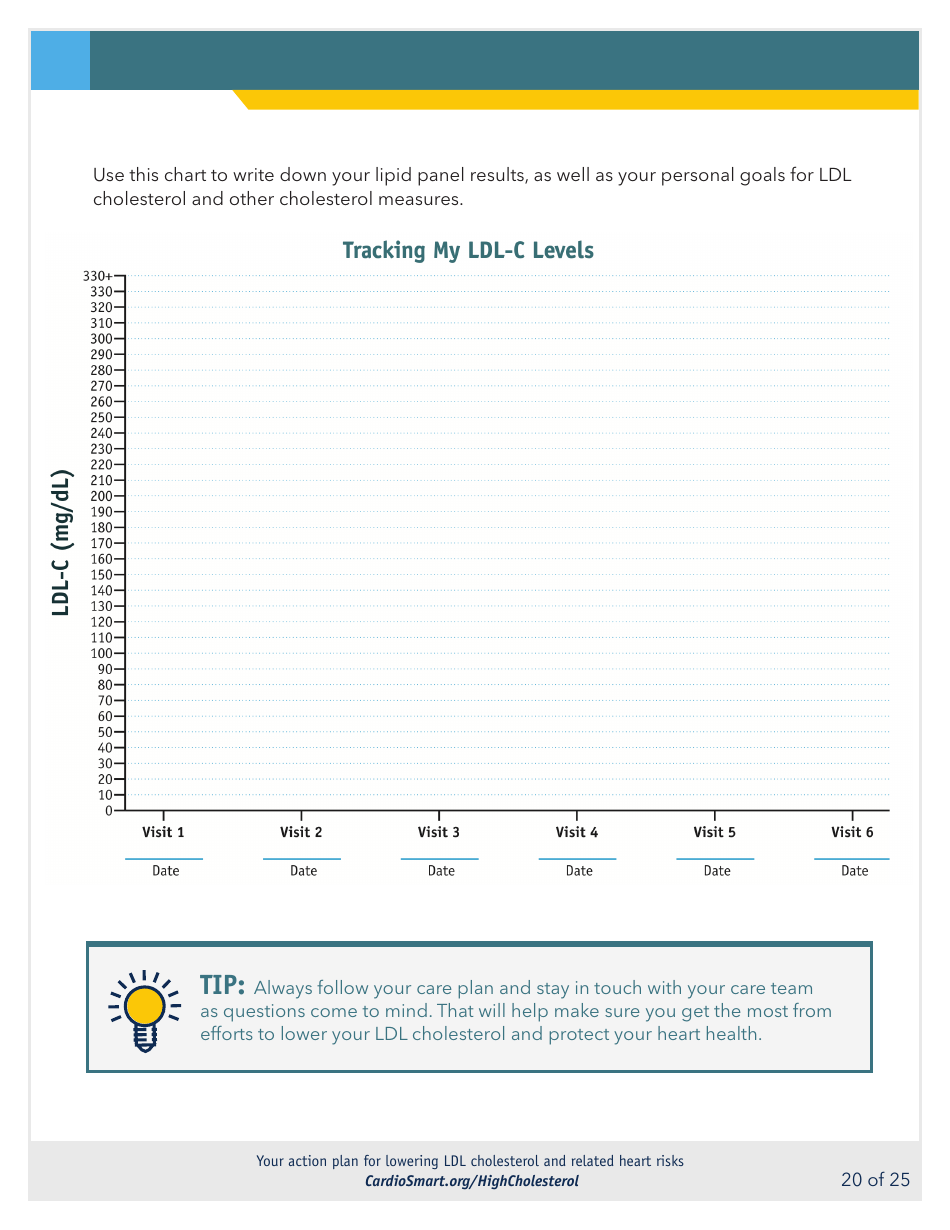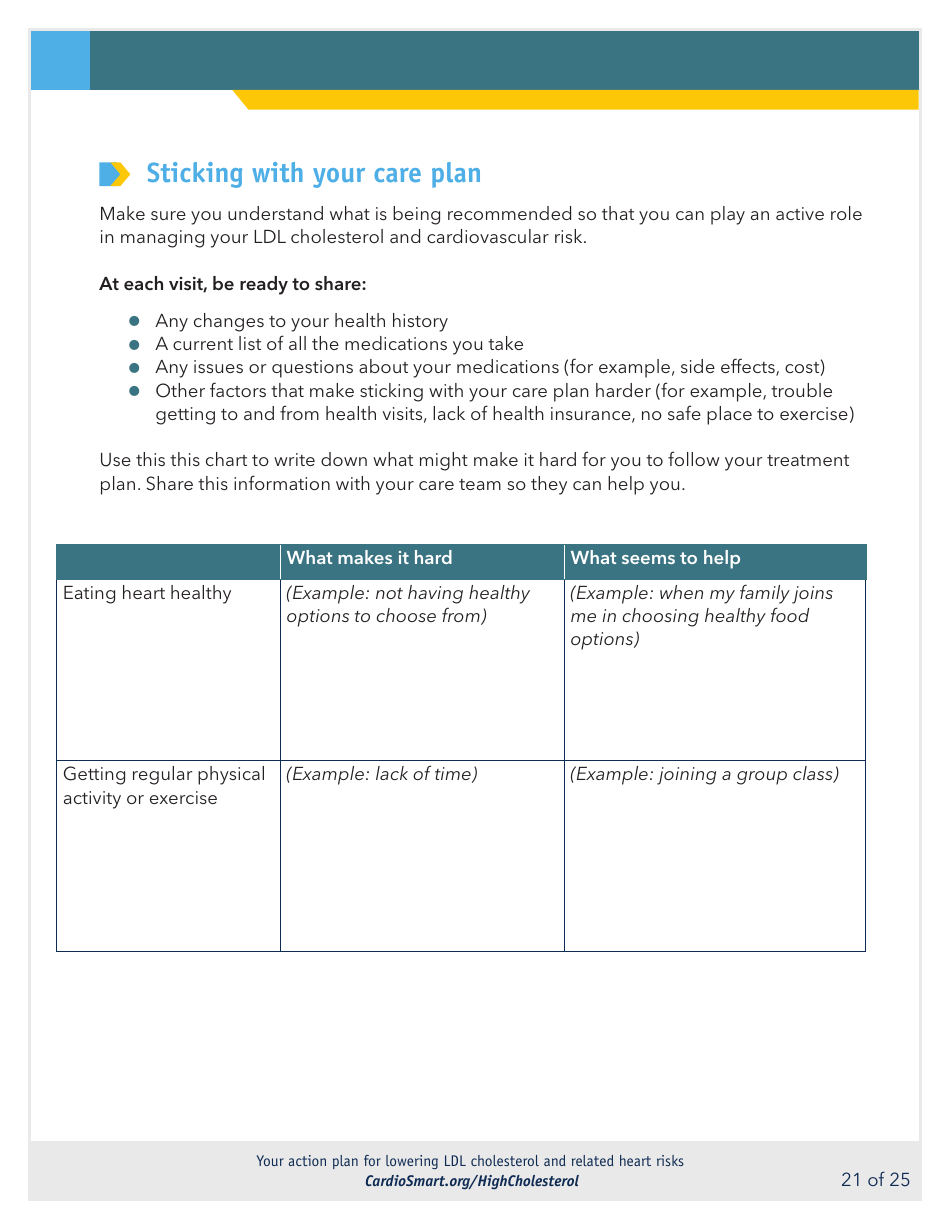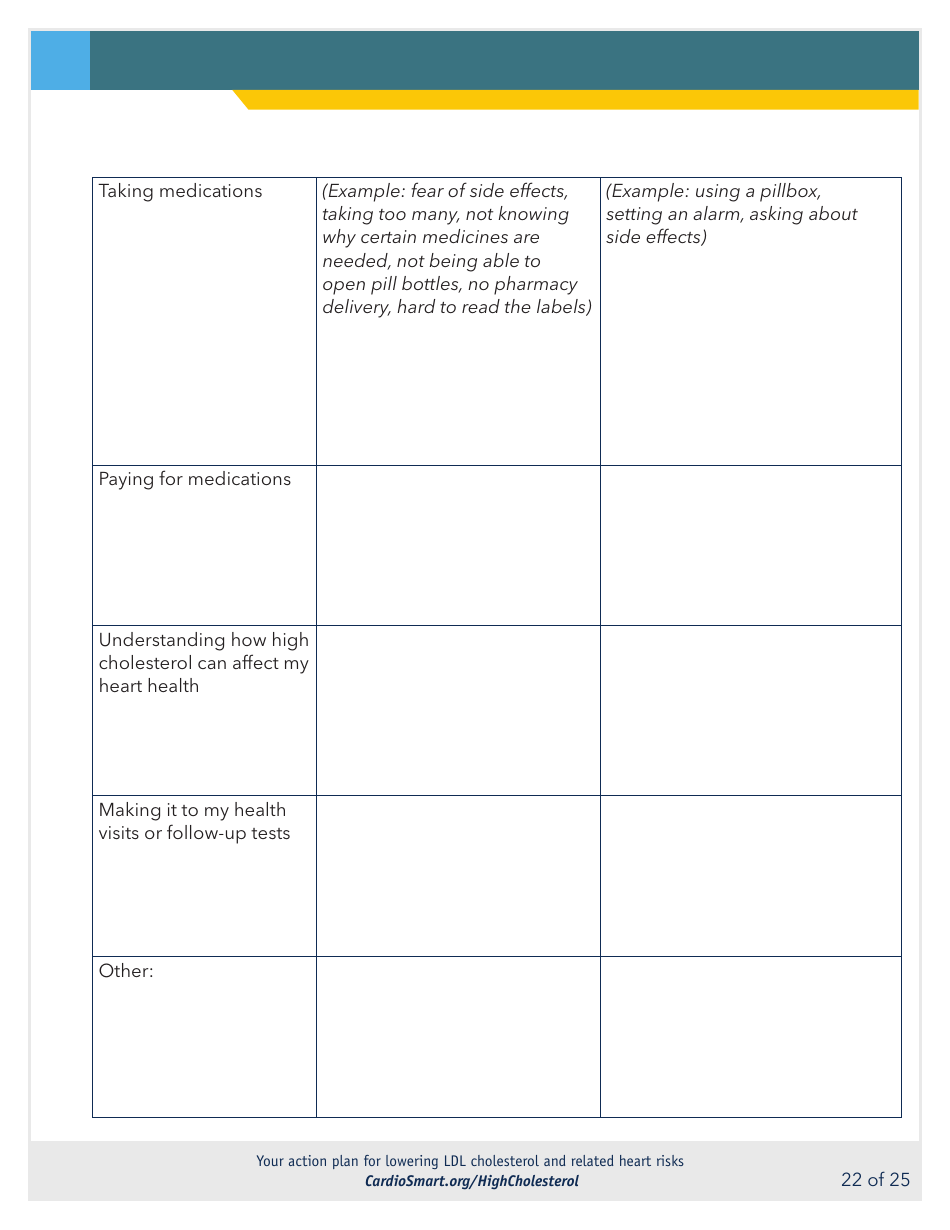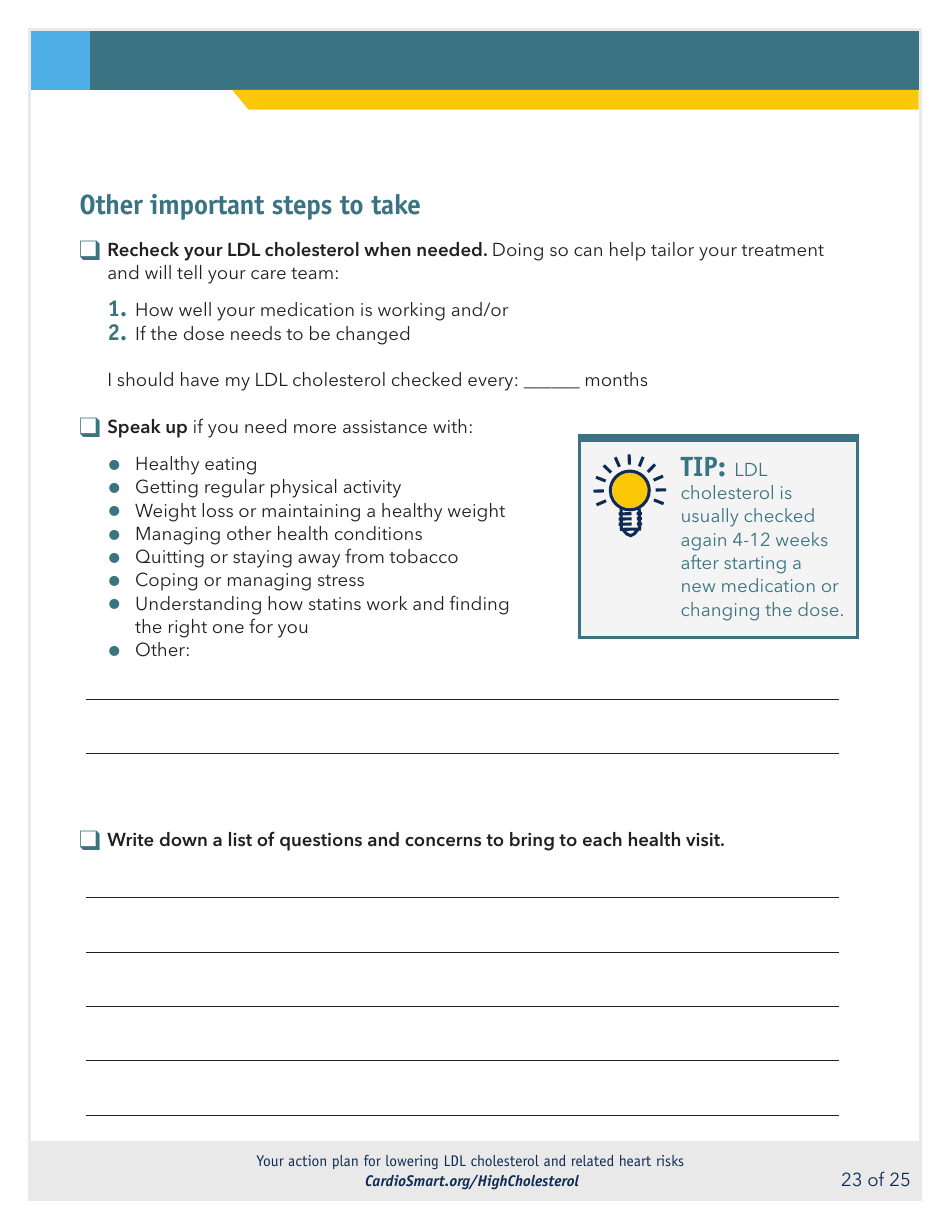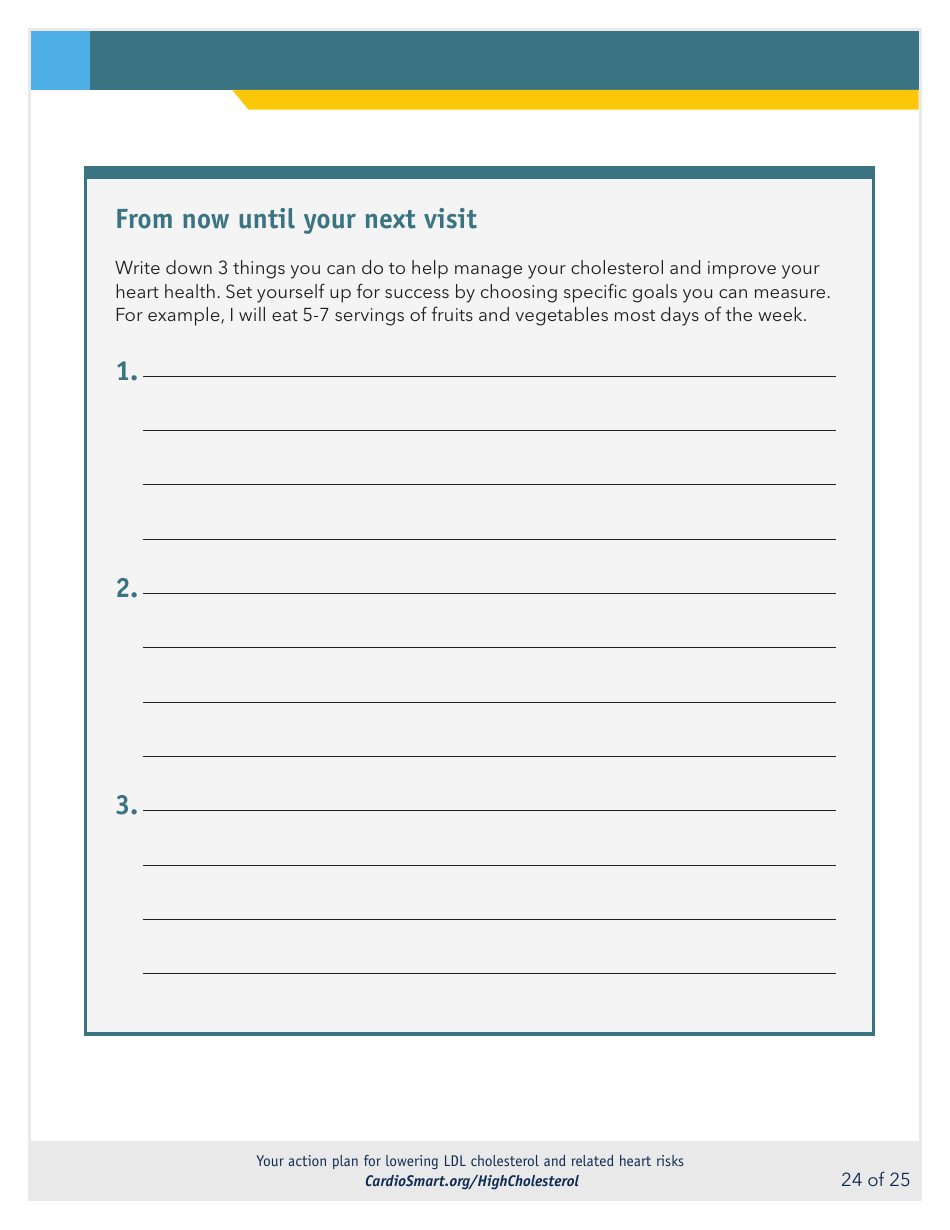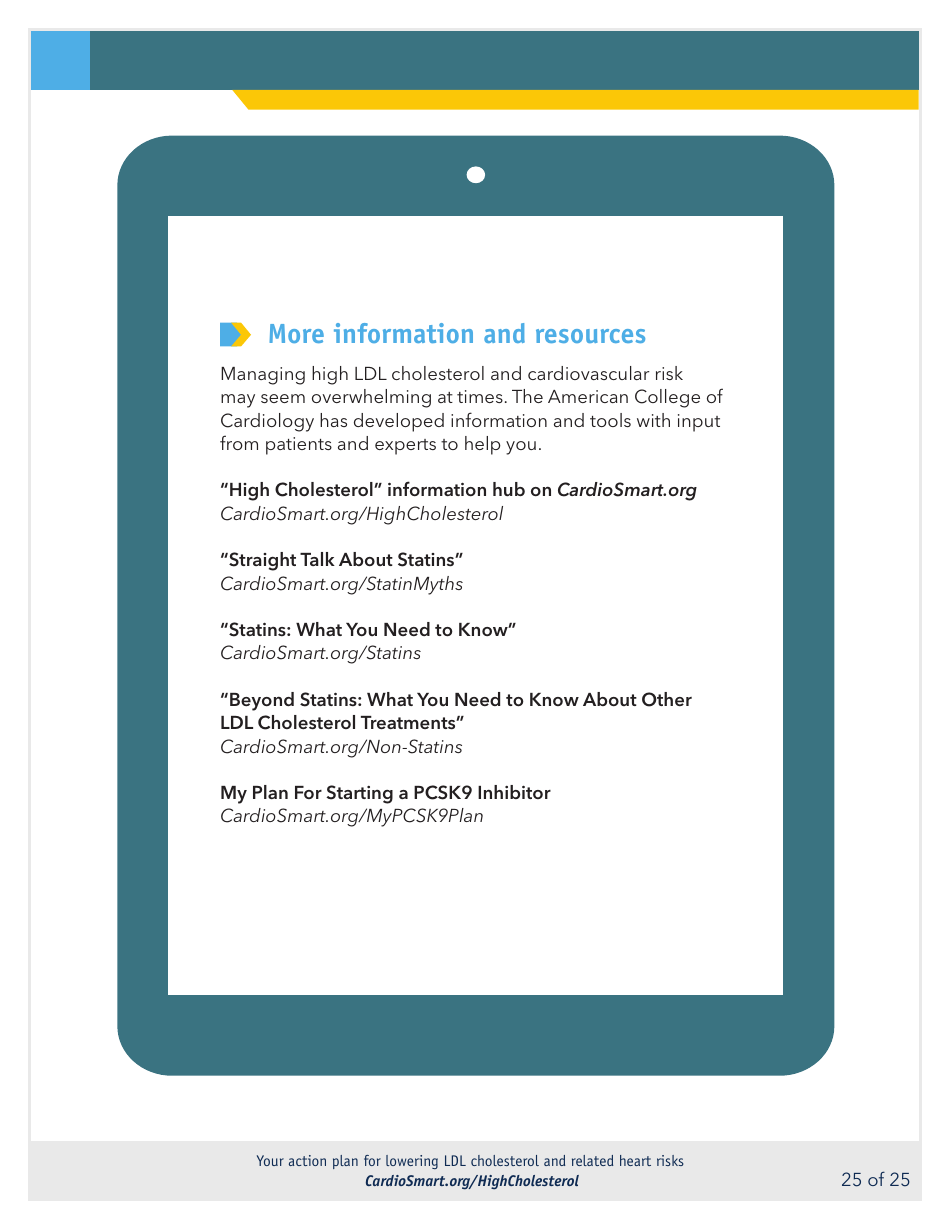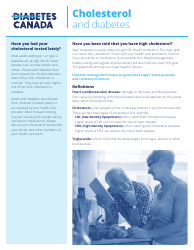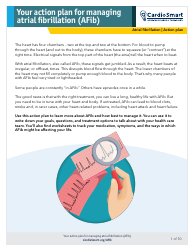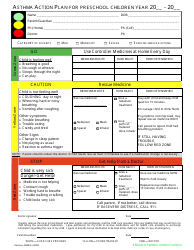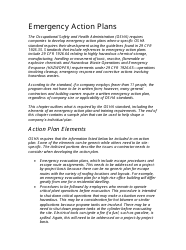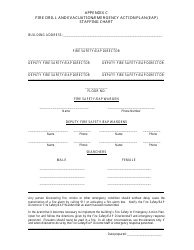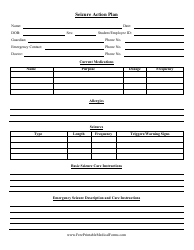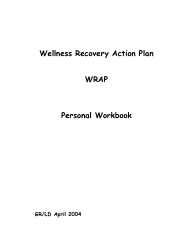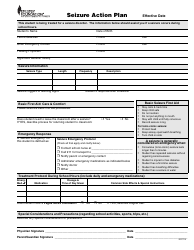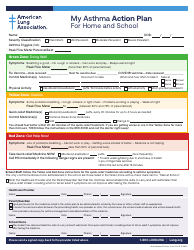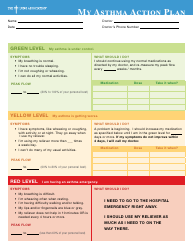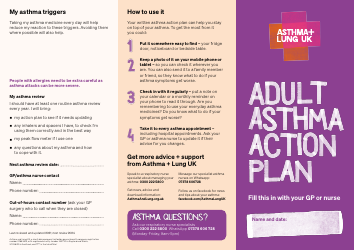Action Plan for Lowering Ldl Cholesterol and Heart Risks - Cardiosmart
The "Action Plan for Lowering LDL Cholesterol and Heart Risks - Cardiosmart" is a document that provides comprehensive information and guidelines on how to lower LDL (low-density lipoprotein) cholesterol level and reduce heart-related risks. LDL, often referred to as 'bad cholesterol', can build up in your arteries and lead to heart disease. The Action Plan details various methods including lifestyle modifications like diet, exercise, and quitting smoking, along with medical treatments, if necessary. It also gives guidance on how to assess one's progress and maintain overall good cardiovascular health. Essentially, this document serves as a roadmap to assist individuals in managing their cholesterol levels and heart health in an effective way.
The Action Plan for Lowering LDL Cholesterol and Heart Risks is typically filed by healthcare professionals, specifically doctors or cardiologists. CardioSmart is an educational service provided by the American College of Cardiology, so its members, who are professionals within the field, would be responsible for filing such plans. These plans are personalized based on the specific needs of the patient. It's also crucial to note that individuals can take personal responsibility for their health by following the action plan daily to effectively lower their LDL cholesterol and manage heart disease risks.
FAQ
Q: What is LDL cholesterol?
A: LDL cholesterol, often referred to as 'bad' cholesterol, is a type of fat that can build up in the arteries, causing them to narrow and potentially leading to heart disease.
Q: What methods are recommended to lower LDL cholesterol?
A: To lower LDL cholesterol, it's recommended to make lifestyle changes such as adopting a healthy diet low in saturated and trans fats, exercising regularly, refraining from smoking, and consuming alcohol in moderation.
Q: What risks are associated with high LDL cholesterol?
A: High LDL cholesterol can lead to the development of fatty deposits in your blood vessels which can reduce blood flow through your arteries, leading to heart-related complications like heart disease, stroke, and even heart attack.
Q: How does lowering LDL cholesterol help with heart risks?
A: Lowering LDL cholesterol can help reduce the buildup of fatty deposits in your arteries, improving blood flow and thus lowering the risk of heart disease, stroke, and heart attack.
Q: What resources does Cardiosmart provide for lowering LDL cholesterol?
A: Cardiosmart provides a variety of resources such as diet and exercise plans, informational articles, guidelines and expert advice for lowering LDL cholesterol and reducing heart disease risks.
Q: What is the importance of a heart-healthy diet to lower LDL cholesterol?
A: A heart-healthy diet that is low in saturated and trans fats can help to lower your LDL cholesterol levels, reducing the risk of damage to your arteries and subsequent heart disease.
Q: How does physical activity help to lower LDL cholesterol?
A: Physical activity can raise 'good' cholesterol levels while also lowering 'bad' cholesterol levels, increasing the speed at which body carries LDL to liver where it's expelled, thus leading to a decrease in cholesterol in the bloodstream and lower heart risk overall.
